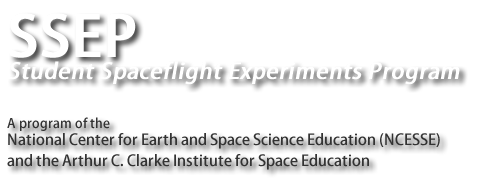The National Center for Earth and Space Science Education (NCESSE), and Arthur C. Clarke Institute for Space Education, are proud to introduce the National Step 2 Review Board for SSEP Mission 20 to the International Space Station (ISS), reflecting a combined Mission 20 participation by 4 communities.
On March 31, 2025, the Board met via Zoom, to review 12 finalist proposals for student flight experiments submitted from across 4 communities participating in Mission 20.
Listed below are the 5 Board Members—scientists, engineers, and science educators from academia, federal agencies, commercial entities, and national science education non-profits.
For Mission 20 to ISS, a total of 158 grade 11-16 students were formally engaged in designing microgravity experiments suitable for flight aboard ISS. At the conclusion of the experiment design phase, a total of 41 proposals were submitted by student teams, and 38 proposals were forwarded for review by SSEP Step 1 Review Boards in the communities.
For Step 2 review, the Board Members were assembled into 1 team, comprised of both researchers and science educators, and was responsible for review of proposals from the four SSEP communities. The Board Members spent a great deal of time providing thoughtful comments for all 12 proposals, which were forwarded to the proposing student teams by NCESSE. The review went well beyond what is typical of reviews for professional research proposals given the deep recognition that the review process, and the comments back, were critically important teachable moments for the student researchers that worked so hard on their proposals. Through SSEP, we want to immerse students in real science. The review process is very much a part of real science, and that process therefore needs to be transparent and a learning experience.
NCESSE reviewed all comments from the Step 2 Review Board to assess if there were any outstanding questions that needed to be addressed by the selected student flight teams, and by April XX, 2025 NCESSE formally notified each community of their selected flight experiments.
You are invited to explore the selected flight experiments and honorable mention finalist experiments for Mission 20 to ISS.
A Note to All Mission 20 Student Research Teams
To the hundreds of students that participated in SSEP Mission 20 to ISS, regardless of whether your proposal was selected for flight, and regardless of whether it formally went before a Review Board, it is important to recognize the endeavor in which you’ve been engaged – real science. This is how real research proceeds from opportunity, to defining a proposed research program, to submission of a proposal, to formal proposal review and selection. In the professional world, comments back from the Review Board allow a team to rethink and refine their proposed research, so they can submit a better proposal for the next opportunity. We have indeed had SSEP student teams that did not get selected for spaceflight the first time, but did get selected with a refined proposal as part of their community’s next flight opportunity.
Reflect on the overall experience, and recognize that you and your team owned this process – you came up with a microgravity experiment of interest to you, and designed it to fly in a research mini-lab that has a very real set of constraints on its operation. So get excited about what you’ve achieved, and get excited about science, technology, engineering, and mathematics (STEM). We challenge you to seek out new opportunities in STEM where you can be curious and take ownership … in the journey.
Finally, recognize that YOUR COMMUNITY now has an experiment destined for the International Space Station, that you are part of this historic adventure, and now you and your community can rally around your flight experiment and root for its success.
The SSEP National Step 2 Review Board for Mission 20 to ISS—
1. Dr. Juliette Lecomte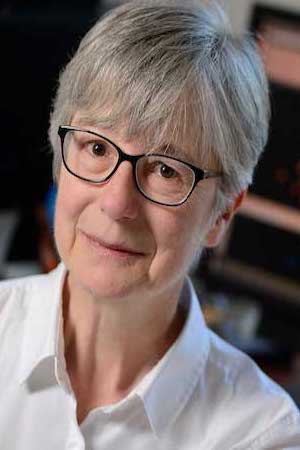
Professor, Department of Biophysics
Johns Hopkins University
Juliette Lecomte is a Professor in the T.C. Jenkins Department of Biophysics in the School of Arts and Sciences at Johns Hopkins University in Baltimore. She is a physical chemist by training and specializes in the application of nuclear magnetic resonance spectroscopy to proteins. Her research interests include the molecular evolution of the hemoglobin superfamily. Currently, her group seeks to understand the thermodynamic and dynamic principles underlying adaptation to extreme environments, specifically those encountered by deep-sea unicellular organisms.
2. Catherine Maggiori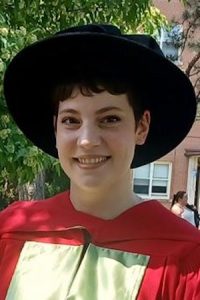
Postdoctoral Researcher
Department of Biology, Georgetown University
Catherine is a postdoctoral researcher in the Johnson Biosignatures Lab at Georgetown University. She completed her Ph.D. in microbiology at McGill University, where she studied unambiguous life detection for astrobiology and field tested instrumentation in extreme Mars analogue environments. Catherine now works on developing methods for agnostic life detection, conducting experiments to define sample complexity through molecular complementarity and DNA sequencing. Catherine is passionate about exploring the intersection of microbial life and astrobiology in terms of planetary protection, biosignature detection, extremophile metabolisms, and astronaut support. She is always excited to contribute to astrobiology outreach and encourage students to pursue space science.
3. Travis O’Brien, Ph.D., M.Ed.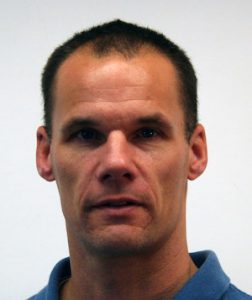
Associate Professor, Department of Pharmacology and Physiology
George Washington University Medical Center
Dr. O’Brien has been involved in education at the undergraduate, graduate and professional level for 20 years. He directs the Physician Assistant Program and graduate pharmacology courses at the GWU School of Medicine and Health Sciences. He is also the co-director of the Reproductive Medicine and Endocrinology course in the GWU MD program and provides numerous lectures throughout the other courses in the MD curriculum. Dr. O’Brien also directs the graduate course in pharmacogenomics and personalized medicine and has authored numerous publications on the topic. His research is focused on translational medicine and the development of predictive pharmacogenomic/toxicogenomic biomarkers in minority populations.
4. Dr. Pushpa Tandon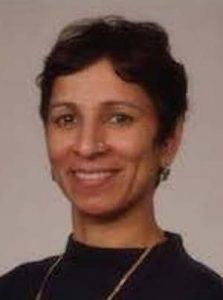
Program Director, Cancer Imaging Program
National Cancer Institute
Dr. Pushpa Tandon received her Master’s in Biochemistry and her Ph.D. in Neurochemistry, from the University of Lucknow, India. Dr. Tandon is currently a Program Director, within the Cancer Imaging Program, and the Administrative Deputy Director, of the Quantitative Imaging Network, an international Network for development of quantitative imaging tools for prediction of tumor response to treatment, at the National Cancer Institute, Maryland, USA. She has been working in the field of Cancer Imaging for over 25 years and has developed and manages several international programs and collaborations around the world. She was involved with the establishment of low cost, point-of-care technologies for cancer program at NCI and currently manages several of the international project under it . She has been a mentor to several Ph.D students and enjoys working with students at all levels. Her main interests are cancer imaging, cancer biomarkers, inflammation and nanotechnology. Dr. Tandon is interested in the holistic approach to medicine. She was awarded the United States Embassy Science fellowship in summer 2018 to develop a bilateral Indo-US bilateral program on Indian Traditional medicine and cancer. She has published over 50 peer review articles and several book chapters.
5. Dr. Harri Vanhala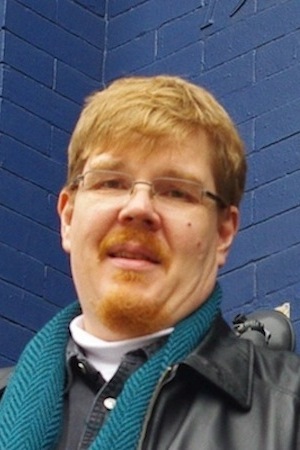
Adjunct Space Science Researcher, National Center for Earth and Space Science Education
Senior Scientist, Arctic Slope Technical Services
Originally from Finland, Harri received his Ph.D. in astronomy from the University of Oulu. Harri has worked in various research and education organizations in the Unites States for 20 years. He is a Senior Scientist at Arctic Slope Technical Services, where he works with NASA’s Space Technology and Human Exploration and Operations Mission Directorates to help select new space technology projects for development and experiments for flight to the International Space Station. His science research focuses on the use of computer simulations to investigate the origin of the Solar System and the formation of stars and planetary systems across the Universe. His science education activities have included hundreds of visits to grade K-12 classrooms, conducting teacher training workshops, teaching college courses, and presentations to families and the public—he is one of the presenters for the Center’s Family Science Night program at the Smithsonian National Air and Space Museum.
